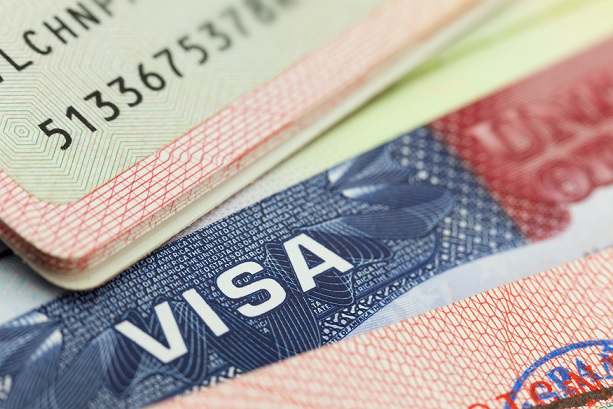Travel opens our eyes to the world’s beauty and diversity. Yet, as modern explorers, we face new responsibilities. Our journeys can impact local communities and environments in ways we might not expect.
This guide aims to help us travel with both enthusiasm and awareness. We’ll explore how to make thoughtful choices, from selecting accommodations to interacting with local cultures.
By understanding the hidden complexities of tourism, we can enjoy richer, more meaningful adventures while fostering positive change in the places we visit.
The Evolving Landscape of Global Travel
Travel has transformed dramatically in recent years. According to Investopedia, the rise of budget airlines has made far-flung destinations more accessible than ever. The evolution of home-sharing platforms has also aided travelers across the world. Yet, this ease of access brings new challenges.
Global tourism witnessed a significant surge, as reported by UN Tourism. 2024 recorded over 285 million international travelers in its first quarter. This marked a substantial 20% increase compared to the same period in 2023, highlighting the robust recovery of the travel industry.
Overtourism strains popular locations, threatening both local cultures and ecosystems.
Take Venice, for example. The city has implemented measures to limit tourist group sizes to protect its fragile infrastructure from the overwhelming influx of tourists.
As reported by The Guardian in 2023, a group cannot have more than 25 people at once. This was done to alleviate the strain caused by thousands of visitors crowding its iconic squares, bridges, and narrow walkways.
Meanwhile, the carbon footprint of air travel contributes significantly to climate change.
Modern travelers must navigate these complexities. Consider using apps like Green Tripper to calculate and offset your journey’s carbon emissions. When reserving accommodations, check for certificates such as Green Key or EarthCheck. These indicate that the place indulges in environmentally friendly practices.
Digital nomadism has also reshaped travel, blurring the lines between work and exploration. If you’re considering this lifestyle, research visa requirements carefully. According to the World Visa Group, countries like Spain and the Netherlands now offer specific “digital nomad visas.”
Choose Accommodations Wisely
Choosing a sustainable lodging option goes beyond price and amenities. Responsible travelers should prioritize hotels with strong environmental policies. In addition to the ones mentioned earlier, look for properties certified by LEED or participating in initiatives like the Hotel Carbon Measurement Initiative.
The importance of conducting thorough online research cannot be emphasized enough. Pay special attention to what solo travelers have to say. This is because these are the ones who often prioritize safety.
Here, look beyond surface-level amenities and watch for red flags in reviews. Scour for mentions of suspicious activities or unsafe surroundings.
TorHoerman Law reports that there have been numerous lawsuits against major chains like Hilton, Marriott, and Red Roof Inn. Accusations of serious human rights violations have been leveled against these establishments. They are alleged to have been involved in or facilitated forced sexual relations, human trafficking, and sexual abuse.
A lawsuit against hotels for human trafficking focuses on whether the establishment’s policies and practices contributed to or failed to prevent such activities.
The American Hotel and Lodging Association provides a list of red flags. These include guests with few personal belongings or individuals who appear disoriented and under another’s control.
Moreover, if you suspect trafficking, don’t confront the situation directly. Instead, contact the National Human Trafficking Hotline at 1-888-373-7888 or text 233733.
Moving on, try to support local economies by choosing locally-owned accommodations when possible. Platforms like Fairbnb.coop ensure a percentage of booking fees go to community projects.
Preparing for Ethical Experiences
Ethical travel starts long before you pack your bags. Begin by researching your destination’s current social and environmental challenges. Explore resources such as Ethical Traveler for information on destinations’ human rights records and environmental initiatives.
Moreover, when choosing activities, focus on those supporting local communities. Seek out tour operators with Global Sustainable Tourism Council certification, ensuring they adhere to rigorous social and environmental standards in their operations.
Packing sustainably can reduce your trip’s environmental impact. Invest in a water filtration system like LifeStraw to avoid single-use plastic bottles.
Choose reef-safe sunscreens if you’re visiting coastal areas. The National Oceanic and Atmospheric Administration states that ingredients like oxybenzone and octinoxate harm coral ecosystems.
Finally, consider travel insurance that includes emergency evacuation coverage. Forbes states that this protects you and prevents burdening local healthcare systems in case of serious illness or injury.
Embracing Cultural Sensitivity
Cultural awareness transforms your journey from mere sightseeing to meaningful exploration. It’s the key to fostering mutual respect and avoiding unintentional offense.
Before departure, invest time in learning about your destination’s customs. Pay attention to dress codes, particularly for religious sites. In many Middle Eastern countries, for instance, covering shoulders and knees is essential.
Learn basic phrases in the local language. Apps like Tandem connect you with native speakers for language exchange, enhancing your cultural understanding.
Avoid common faux pas. In Japan, never stick chopsticks upright in rice; in Thailand, don’t touch someone’s head. Also, when photographing locals, always ask permission first.
Remember, cultural sensitivity isn’t about perfection. It is about approaching differences with respect and an open mind.
FAQs
Q1: How can travelers with disabilities ensure their accommodations are both accessible and ethically managed?
A: Research hotels with accessibility certifications and strong ethical practices. Contact properties directly to discuss specific needs. Consider working with travel agencies specializing in accessible travel. Review recent guest feedback from travelers with similar requirements. Prioritize accommodations that demonstrate commitment to both accessibility and sustainability.
Q2: What strategies can budget travelers use to maintain ethical practices without increasing costs?
A: Explore volunteer opportunities that offer accommodation in exchange for work. Use public transportation or bike-sharing programs. Opt for locally-owned hostels or guesthouses. Cook meals using locally sourced ingredients. Participate in free walking tours led by locals. Seek out free days at museums and cultural sites.
Q3: How can travelers communicate ethical concerns to tour operators or accommodations?
A: Frame concerns as inquiries about the company’s practices. Use respectful, non-judgmental language. Offer suggestions rather than criticisms. Provide specific examples of ethical practices you’ve appreciated elsewhere. Express willingness to learn about local perspectives on sustainability and ethics. Follow up with written feedback after your experience.
As global citizens, our travels weave a tapestry of experiences that shape our understanding of the world. By embracing wanderlust and awareness, we transform from passive tourists to active contributors in the places we visit.
This mindful approach to exploration enriches our journeys and nurtures a more sustainable and equitable tourism industry for future generations.



